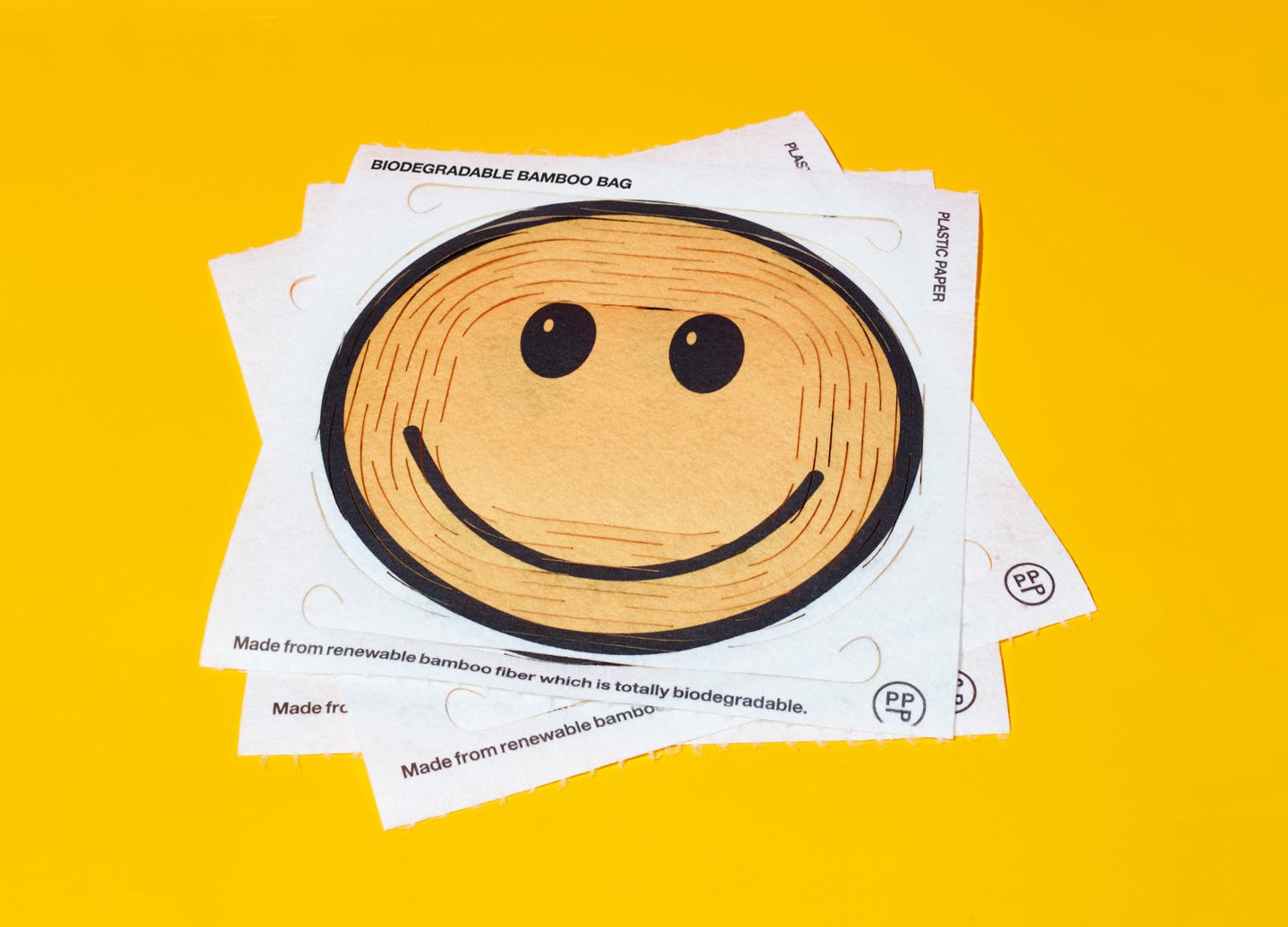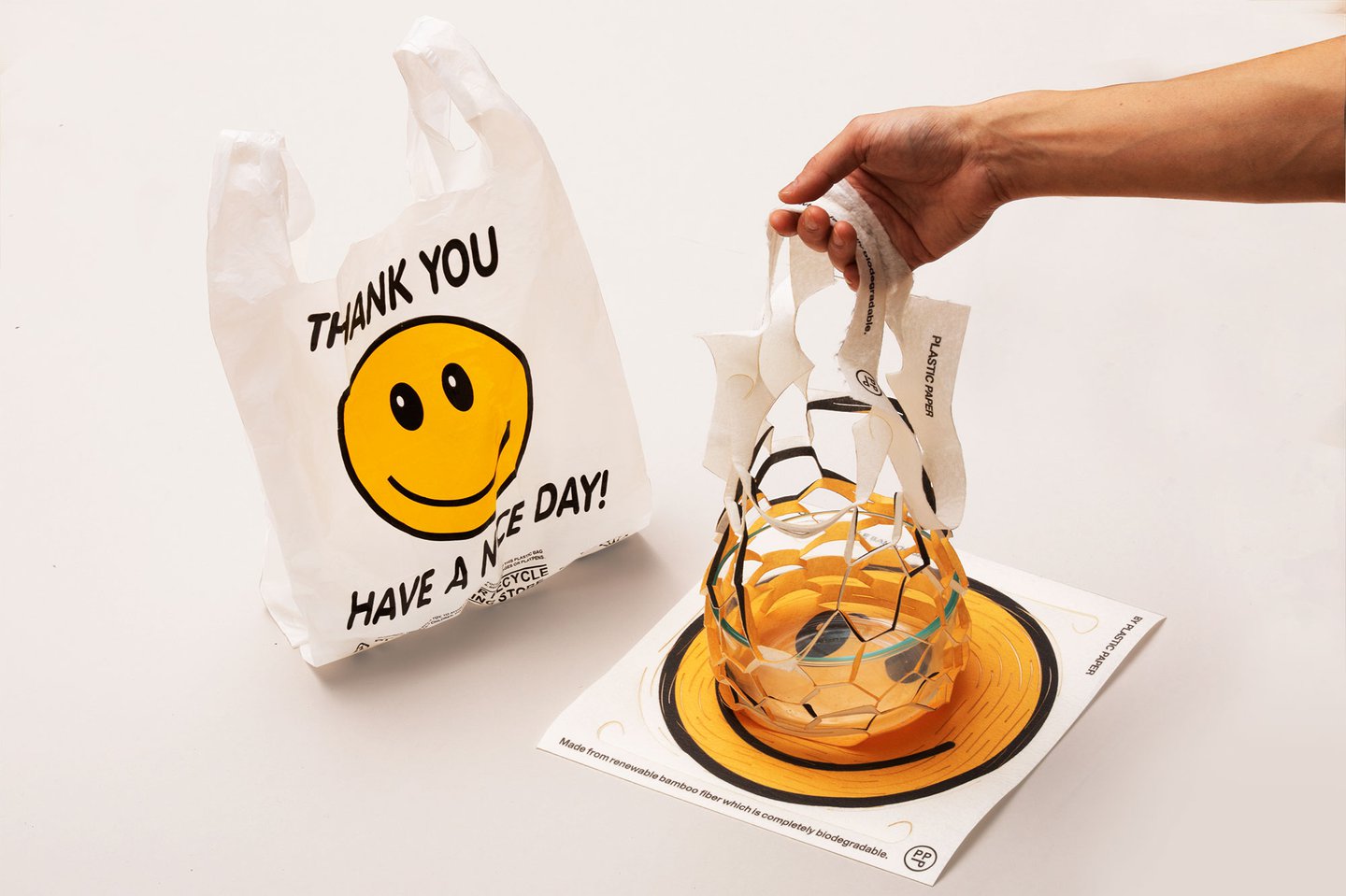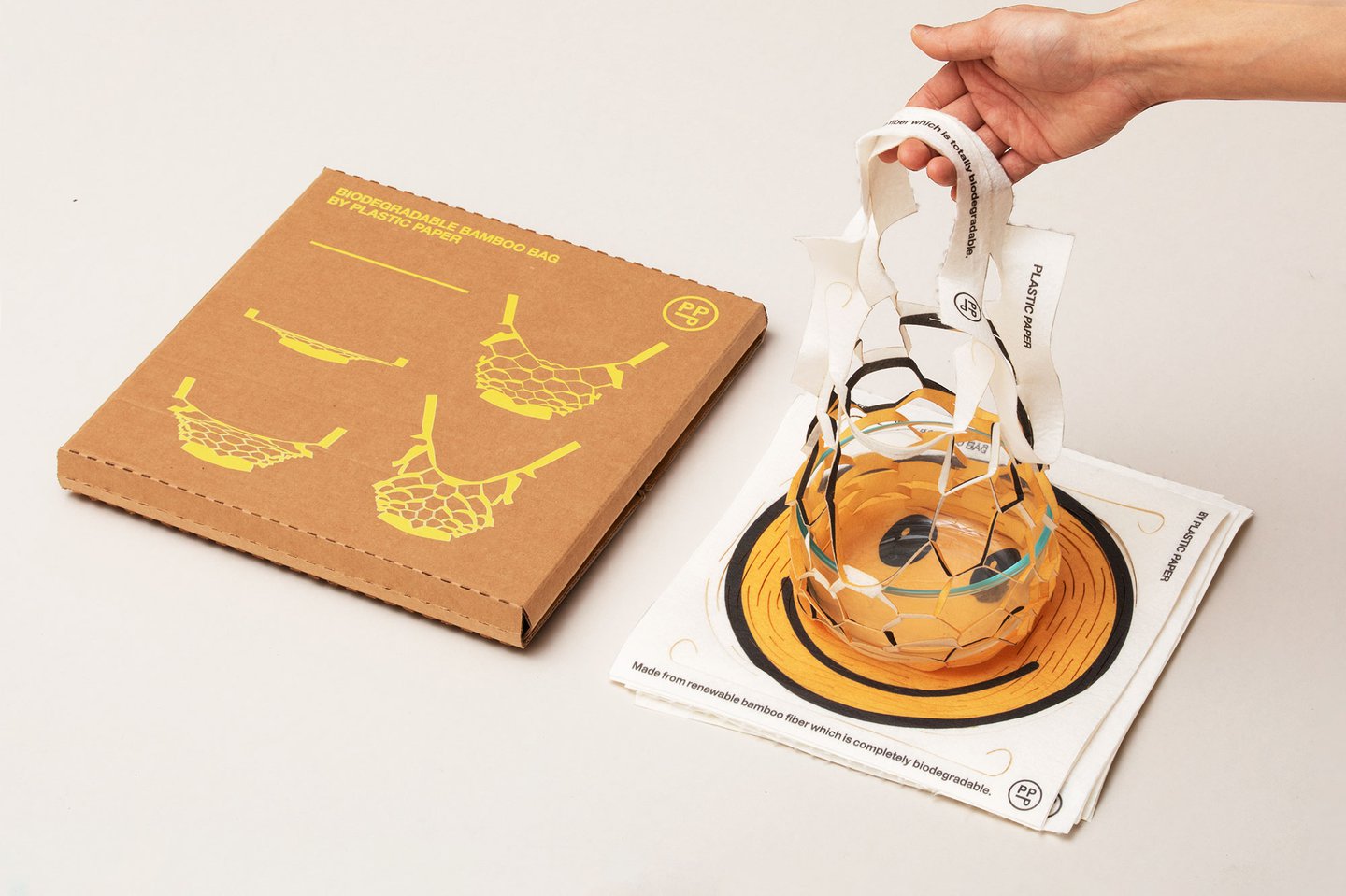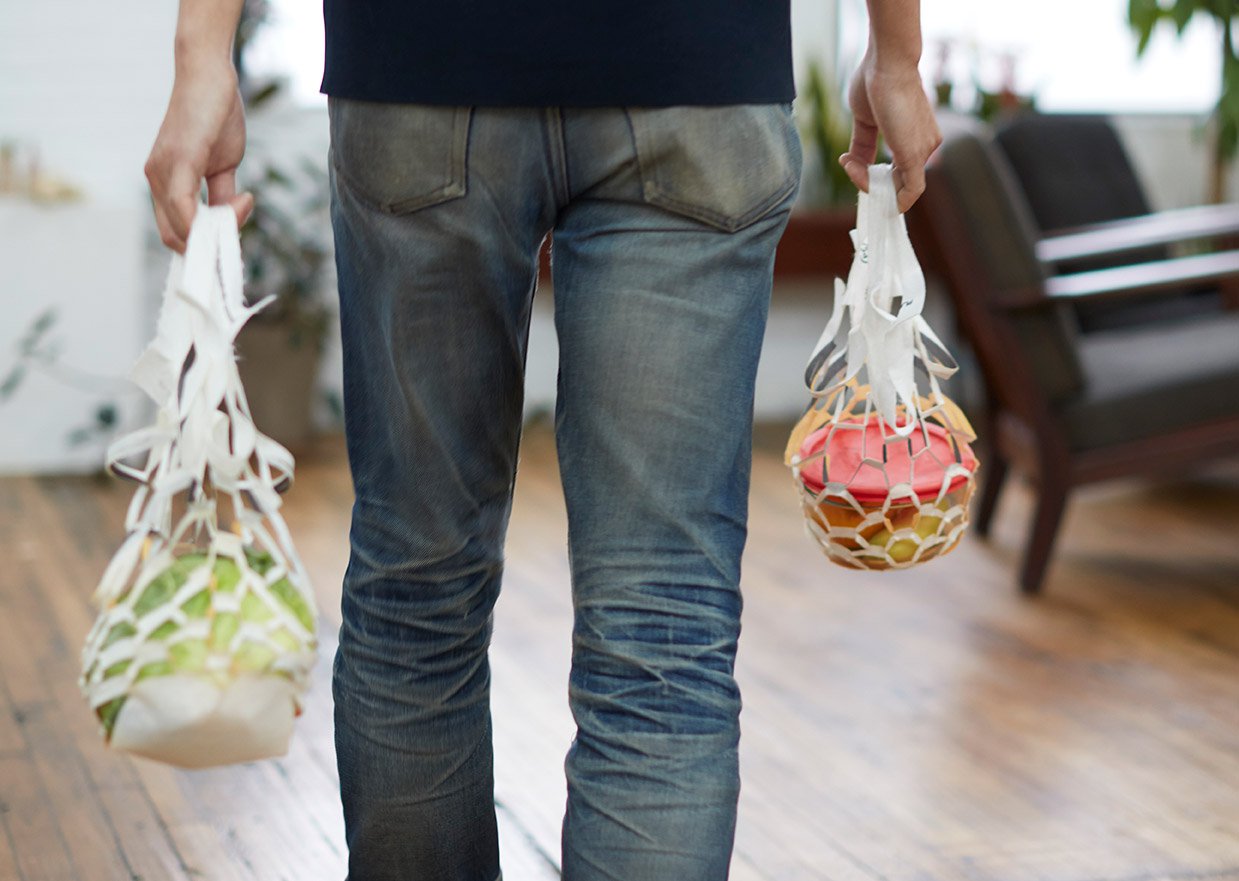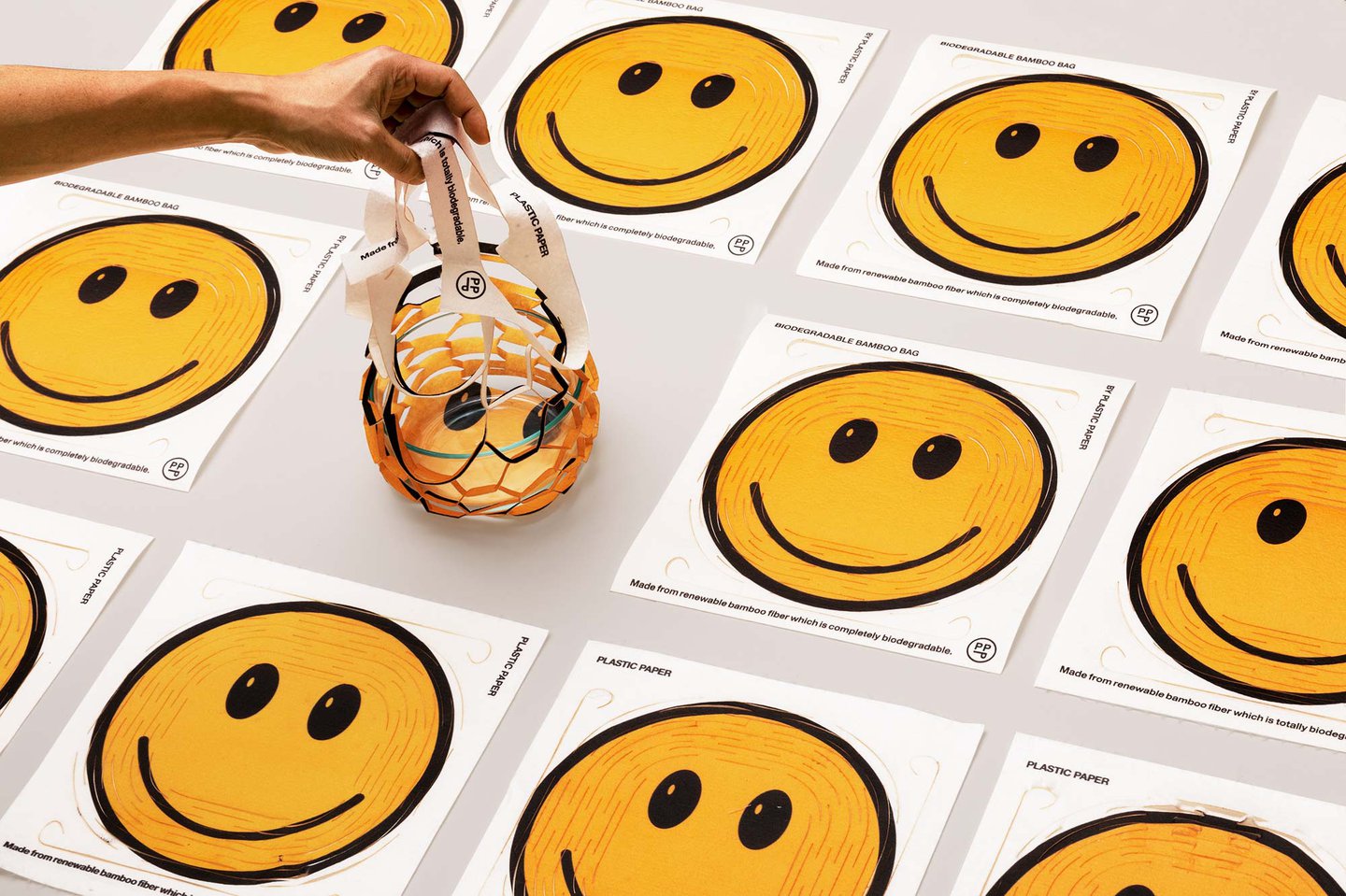The project filling a loophole in NYC’s plastic bag ban
As the ban on single-use plastic bags comes into force today in New York, the creators of last year’s Plastic Paper project launch this biodegradable alternative for retailers that can dodge the new laws.
Today, New Yorkers wake up to a state where single-use plastic bags are banished, for the most part. Restaurants and retailers who served uncooked or prepared food have their very own loophole, so can continue to use plastic bags, but Brooklyn-based non-profit Plastic Paper wants to offer an alternative. Adapting a design ubiquitous in Taiwan using renewable material, the Biodegradable Bamboo Bag does what it says on the tin: it’s made of sustainable bamboo fibre instead of plastic, it uses a single sheet of fibre that folds out to form a bag, and it’s safe to compost afterwards.
The bag is economical with material using 75 per cent less material than a standard paper bag, and targets a particularly prevalent niche of plastic bag usage – takeout. The design “perfectly cradles a bento box,” explains Sho Shibuya, the designer behind Plastic Paper, as well as design studio Placeholder, which makes it equally apt for most takeaway cartons or packaged goods.
The plastic bag ban in New York State is “a big victory for the planet,” he continues. “It’s estimated that the state goes through 23 billion plastic bags each year with half ending up in landfills, where they never decompose. But the ban, unfortunately, isn’t quite airtight.” Hence the Biodegradable Bamboo Bag is aimed directly at the convenience food market, with a mission to reduce people’s daily dependence on single-use plastics through design.
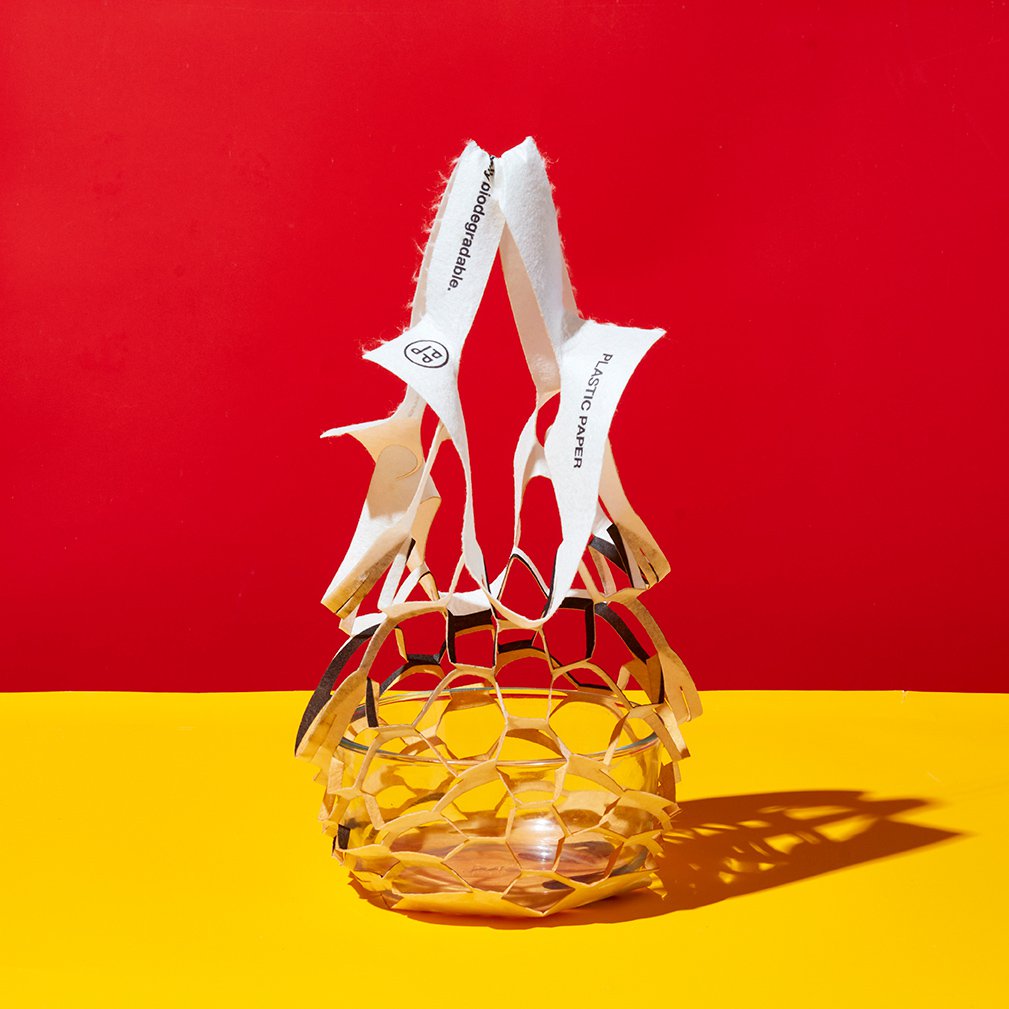
Somewhat ironically, you might know Shibuya from another project celebrating the design of New York’s plastic bags. Plastic Paper started out as a book cataloguing the designs printed on single-use plastic bags, the result of years of collecting the designs after moving to New York from Tokyo. “One of the first things I noticed [when I moved] was the grainy prints on thin plastic bags. They were so different from the ones that we had in Japan, where each shop has its own unique design and the bags were made from thick, durable plastic. I was struck by the ubiquity of the bags — not just the sheer number of them, but the consistency of their designs. I was inspired, and this curiosity eventually led to the Plastic Paper project as it exists today.
“Since then, I’ve become even more deeply aware of the environmental damage caused by these plastic bags, and I’ve dedicated myself to making a difference. So, I am very happy that New York has banned the bags, but was disappointed when I discovered all of the exceptions for businesses like restaurants and delis.
“I’ve talked at length about how waste and single-use items felt shameful for me, rooted in my belief in the twin concepts of yaoyoruzu no-kami and mottainai; two Shinto ideas that hold that everything is precious and nothing should be wasted. This explains why it’s so frustrating for me to see all of these bags used to pick up lunch, only to be thrown in the trash minutes later.”
While Shibuya says the best option is obviously to bring a reusable bag or not use one at all, we all know that doesn’t always happen, and this alternative is “still super convenient for hungry New Yorkers,” he says, “but can be thrown away with minimal guilt. And, it uses less material than the average paper bag. We know it’s important for sustainable habits to be convenient, and this gives restaurants an opportunity to avoid plastic and act in the interest of the planet, without annoying their customers.”
“My goal has always been to preserve the graphic design heritage of these bags and how they’ve contributed to the New York City design scene, which is why I’m so excited to create a sustainable successor that can continue the story without harming the planet. I’m motivated by the idea that design can help solve these problems, and I’m optimistic about what we can accomplish together.”
Profits from the Biodegradable Bamboo Bag will go to environmental organisation Parley for the Oceans.
Plastic Paper / Placeholder: Biodegradable Bamboo Bag. Photography: Henry Hargreaves and Naoko Maeda
